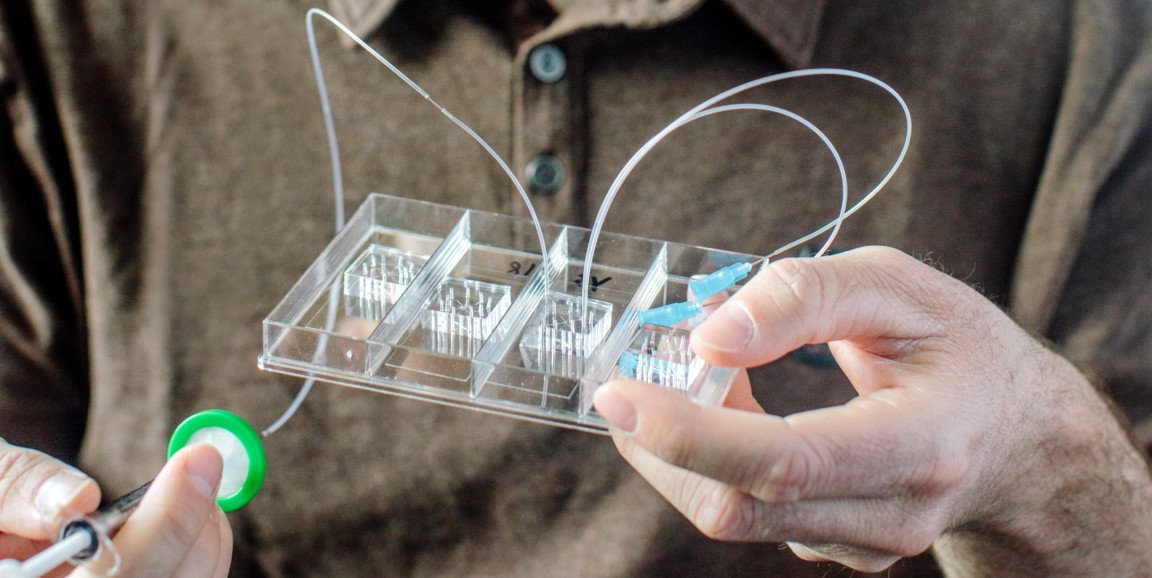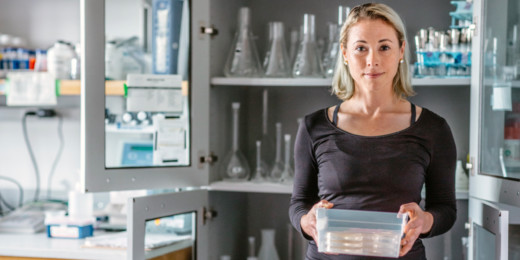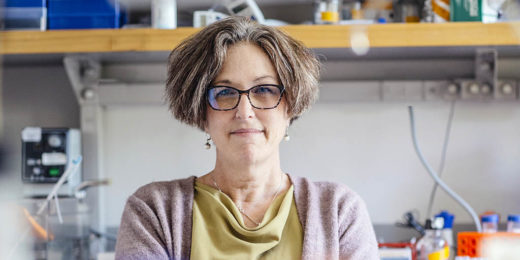For my story "Life in a lab" in the latest issue of Stanford Medicine, I spent almost a week in Miriam Goodman's Wormsense Lab. I watched people work, took notes and recorded hours of interviews -- but only a small portion made it into my story. Here, I'm able to go a bit deeper into the lab members' stories.
Today's piece features graduate student Adam Nekimken. Unlike most of his colleagues, Nekimken wasn't originally trained as a neuroscientist -- he's a mechanical engineer who started working in the lab through a collaboration with Beth Pruitt, PhD, a former professor of mechanical engineering here. He's developing tiny mechanical devices that help researchers touch their worms in more controlled ways.
From Adam Nekimken:
I knew when I started grad school I wanted to do micro fabrication [which involves] making these little micro-mechanical devices. I did an internship after my junior year of undergrad and found that I really liked this stuff, but I didn't want to work on the typical application of that, which is mostly making smartphones incrementally better. That was why I joined Beth Pruitt's lab; the theme of her lab is using these micro-fabricated technologies to study biology. I wasn't looking in particular for biology, but it sort of ended up that was the application that she was working on, and one of the projects in lab was collaborating with Miriam to study touch in worms.
I do like the interdisciplinarity of it. I've learned a ton of biology, and I think it's interesting to learn a new field entirely. And I like working with the micro devices because it's something that almost feels out of reach. With modern manufacturing technology we can make devices that are very small and do what you want them to do. That's sort of the engineer in me, designing new things and building them up and then actually using a thing that you built.
My plan is to go into industry, in part because I want to work on something that has an impact at a larger scale than doing the research. For me, the biggest result of doing my PhD -- other than publishing some papers that may have some impact -- is learning the process of thinking through this research and learning how to formulate experiments and perform them.
We do very basic biology research. Maybe with the exception of what Lingxin Wang [a postdoctoral fellow in the lab] is doing with studying chemotherapy drugs, not much of the work we do has direct applications for humans. I'm working on new devices and new methods for studying the worms, so those on their own aren't going to cure any diseases or anything, but you have to keep in mind the bigger picture: Maybe someone will see that and have an idea that leads them to some other insight that could end up helping people.
Photo by Timothy Archibald






